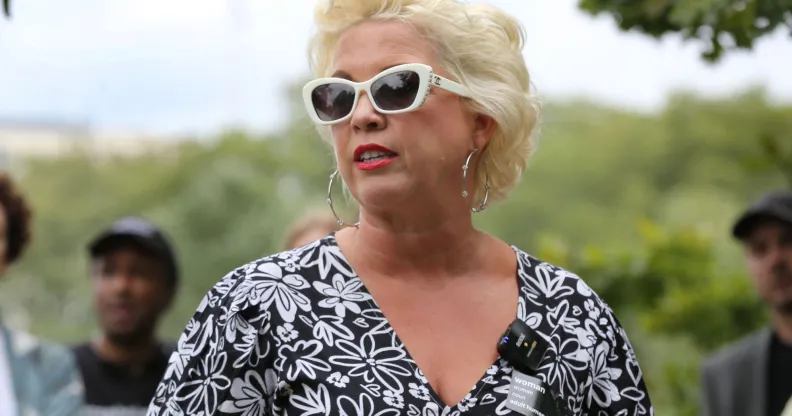Media regulators in New Zealand have taken a stance in support of accurate labeling, dismissing all complaints against news outlets that referred to anti-trans activist Posie Parker as an “anti-trans activist” during her recent tour across Australia and New Zealand. Also known as Kellie-Jay Keen-Minshull, Parker’s supporters had raised concerns about this characterization.
Both the Media Council and the Broadcasting Standards Authority (BSA) conducted thorough reviews of the complaints and determined that the description was factually correct. They ruled that it was not unfair to classify Parker as “anti-transgender” or a “trans-exclusionary speaker,” as these descriptions aligned with their regulatory guidelines.
Furthermore, the Media Council found it accurate to label the neo-Nazi groups in attendance at Parker’s Melbourne rally as supportive of her protest, a decision supported by the BSA. This alignment with neo-Nazi sympathizers did not breach media standards, the BSA concluded.
In total, 16 complaints were filed, with nine submitted to the Media Council and seven to the BSA by anti-trans activists. None of these complaints were upheld, as the regulatory bodies found that the coverage, particularly by the New Zealand national news organization NZ Herald, presented a balanced view by including opposition to Parker’s views along with her history of anti-trans comments.
However, the Media Council did express initial concern over a story by radio station RNZ, which appeared one-sided and received 27 complaints. The report noted the absence of anti-trans perspectives and the failure to acknowledge potential threats against anti-trans activists. RNZ swiftly amended the story to include this information, leading to the dismissal of the complaint.
In response to the regulatory decisions, Posie Parker expressed little surprise, stating, “I’m used to authorities siding with the authoritarians.” She voiced her preference for honest reporting but indicated that it did not consume her thoughts. Parker also expressed empathy for New Zealand women and families affected by what she described as “dishonest misogynist ideology.”

